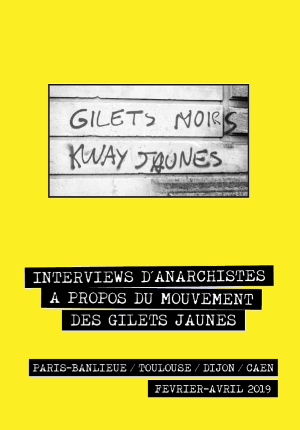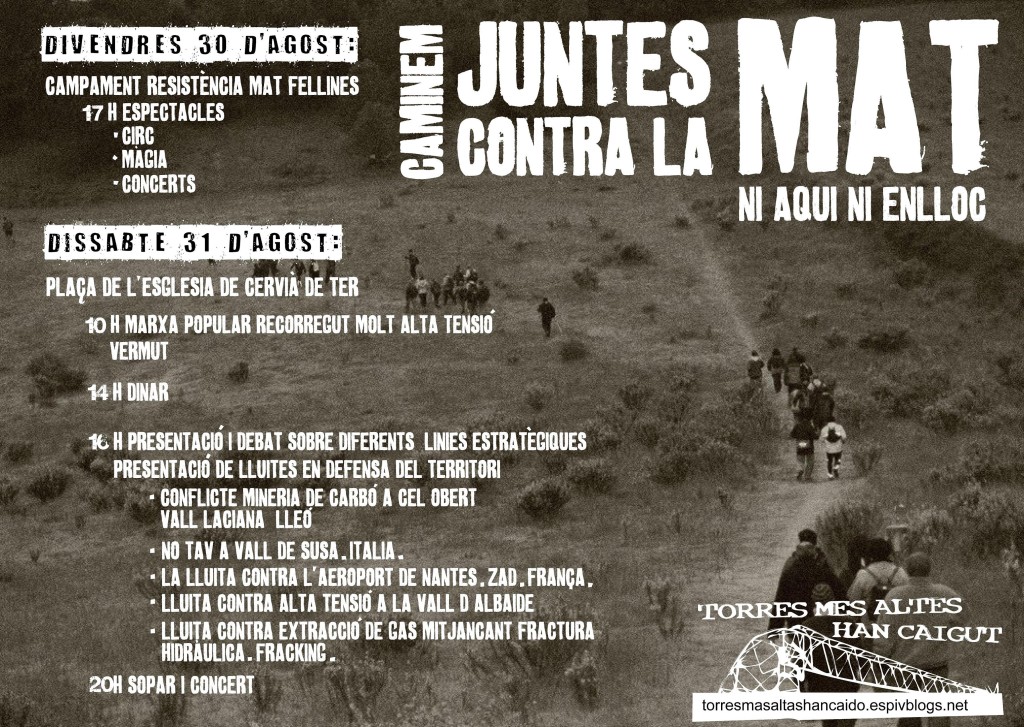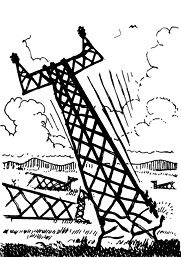Introduction

This booklet originated in the initiative of a Brazilian anarchist magazine, Crônica Subversiva, from Porto Alegre. In January 2019, they wanted to interview a few anarchists about the Yellow Vests movement. Bits of these interviews have been published in Portuguese in the 3rd issue of Crônica Subversiva, and more will be in the 4th issue soon.
The idea was, in particular, to think about what makes this movement resemble the 2013-2014 movement in Brazil, in which social anger was also expressed through massive demonstrations without being hogged or encompassed by political parties or trade unions. It was during these demonstrations that the black bloc emerged in Brazil.
Workers, students, favela youth and other angry people, politically aware or not, took to the streets and attacked symbols of capital and symbols of the state. These massive demonstrations allowed for the emergence of several self-organized and horizontal initiatives. Porto Alegre saw the birth of new self-governed political spaces, occupations of public places such as the City Council that lasted for weeks, but also the arrival of younger people into the fight, who occupied their schools for months and took part in renewed demonstrations in 2015 and 2016. The consequences of this social movement are hard to evaluate today. Five years after the “June of 2013 days”, Jair Bolsonaro, a fascist and a valet of North American imperialism, was democratically elected by the Brazilian “people”. His “conquest” of power partly relied on the capture of some social movements and on the instrumentalization of the hate towards the Workers’s Party (PT), which had disappointed many of its voters. At the end of 2014, an extreme-right (anti-native, anti-black, anti-LGBT, etc.) movement was born, the MBL (Movimento Brasil Livre, or Free Brazil Movement), which gathered a lot of politically lost people and consolidated itself into the future president’s base to access power. If the 2013-2014 social movement in Brazil was not responsible for Bolsonaro’s rise to power, it was not strong enough to block the rise of fascism in the country from 2015 on.
The heritage from the 2013, 2014, 2015 and 2016 movements lives in the heart of all the rioters and black bloc participants who, at some point, tenaciously clashed against the police and against their daily oppressions. That heritage also lives in the different possible futures that insurrectional action allowed them to envision. These movements opened up new paths and educated their participants’ bodies and minds to action. the Yellow Vests movement also lets us catch a glimpse of a country and of its representatives rattled by a wave of insurrection, which shakes us too at the other end of the world. We think that, as anarchists, it is crucial that we ask ourselves certain questions, especially that of our role among social movements. How can we take part in a movement without renouncing our convictions? Without becoming a revolutionary avant-garde? How can we share and spread our ideas towards people who, at first sight have entirely differing world views, in some cases contradictory even to ours? Is creating chaos our only objective?There’s been a lot of talk about the black bloc in France lately, and this is used by the media, the political class and the citizenists to create an essential and false distinction between obedient and law-abiding Gilets jaunes (yellow vests) on the one hand and a minority of ultraviolent extremists on the other hand. It has become clear about this movement that it’s very hard to distinguish the K-way noirs(black raincoats), typical of the black bloc anarchist strategy, from the numerous Gilets jaunes who started this movement having never had any experience of a riot. The Yellow Vests uprising has been (and still is) the feat of a lot of diverse people, with different social, cultural and political backgrounds, bringing together so many rebels to the established social order and a popular anger which had seldom been so intensely expressed… On March 16, 2019 in Paris, even more than in December 2018, there was a happy insurrectional melting pot of political identities, summed up by the tag in the cover picture : “Gilets noirs, K-way jaunes”. Let us also remember that it was of the Champs-Elysées avenue, ravaged by rioting and pillaging, that thousands of people chanted a simple but promising slogan : “Revolution”.Concerning the interviews, the idea is to get a few leads from them on how some anarchists took part in the Gilets jaunes movement in different regions of a territory controlled by the french state. Their aim is to provoke us, as the positions and analyses presented here are diverse and sometimes contradictory.
In any case, they invite us to partake in insurrectional action and confirm again that pacifismand passivity are not valid options against the daily violence of a self-proclaimed all-powerful state. They state no fixed positions to adopt regarding the ongoing movement. They are here to feed reflection, reinforce the fight and show how some anarchists can take part or intervene in insurrectional or even revolutionary situations, but however show confusion in their political perspectives. Done via email between February and April 2019, these interviews are also snapshots of a movement that oscillates, whose intensity increases and decreases in turns and which seems much less predictable than the social movements of the last decades in France. We chose to publish them the way we got them. They were all done in the written form, and we left the choice to everyone to feminize/neutralize/un-gender their words or not, in their own way.In addition, we have quite an massive amount of digitalized documents pertaining to the Gilets jaunes movement (leaflets, political writings, pictures, posters, videos…). These archives are being sorted and are of course available for sharing. Contact us if you’re interested! The same goes for translations of this magazine/brochure: a Portuguese version is on the way, maybe also a Spanish and an Italian one. If you’d like to translate it into other languages, please contact us !Paris-suburbs and Porto Alegre, April 10, 2019Enkapuzado & Zanzara athée
- [FR] lire le texte sur le site
- [FR] télécharger la brochure mise en page : Gilets noirs, K-way jaunes (cahier) – PDF (7.1 Mo) – Brochure de 32 pages A5.
- [FR] télécharger la brochure mise en page : Gilets noirs, K-way jaunes (page par page) – PDF (7.1 Mo) – 32 pages A5.
- [PT] télécharger la brochure mise en page : Coletes pretos, Casacos amarelos (version portugaise – cahier) – PDF (6.5 Mo) – Brochure de 36 pages A5.
- [PT] télécharger la brochure mise en page : Coletes pretos, Casacos amarelos (version portugaise – page par page) – PDF (6.5 Mo) – 36 pages A5.
- [IT] télécharger la brochure mise en page : Gilet neri, K-way gialli (version italienne – cahier) – PDF (8.2 Mo) – Brochure de 32 pages A5.
- [IT] télécharger la brochure mise en page : Gilet neri, K-way gialli (version italienne – page par page) – PDF (8.2 Mo) – 32 pages A5.
- [ES] télécharger la brochure mise en page : Chalecos negros, camperas amarillas (version espagnole – cahier) – PDF (6.3 Mo) – Brochure de 32 pages A5.
- [ES] télécharger la brochure mise en page : Chalecos negros, camperas amarillas (version espagnole – page par page) – PDF (6.3 Mo) – 32 pages A5.
- [EN] télécharger la brochure mise en page : Black Vests, Yellow Raincoats (version anglaise – cahier) – PDF (4.8 Mo) – Brochure de 28 pages A5
- [EN] télécharger la brochure mise en page : Black Vests, Yellow Raincoats (version anglaise – page par page) – PDF (4.8 Mo) – 28 pages A5
- [FR] version papier diffusée par Zanzara athée (Paris-banlieue)


 Radio Blackout – Torino
Radio Blackout – Torino Radio Bronka – Barcelona
Radio Bronka – Barcelona Radio Klaxon – ZAD Notre Dame de Landes
Radio Klaxon – ZAD Notre Dame de Landes Police Spies Out of Lives
Police Spies Out of Lives Contrainformación Anarquista
Contrainformación Anarquista Luca Zanette
Luca Zanette The anarchist library
The anarchist library Khimki Forest
Khimki Forest No Mat Catalunya – Campada
No Mat Catalunya – Campada No THT France
No THT France NoTav
NoTav ZAD – NotreDame de Landes
ZAD – NotreDame de Landes Usurpa!
Usurpa!